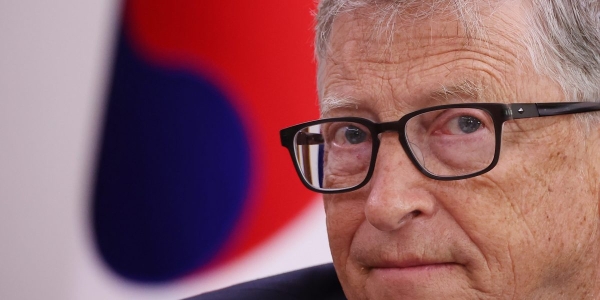
Founder turned-philanthropist Bill Gates has poured cold water on a proposal to ban the development of powerful A.I. for six months in order to get better planning and management parameters in place.
Last week, Tesla and Twitter CEO Elon Musk; Apple cofounder Steve Wozniak; Emad Mostaque, the founder and CEO of Stability AI; and more than 1,100 other high-profile technologists and artificial intelligence researchers signed an open letter calling for a pause in A.I. development.
The letter says companies should immediately cease training any A.I. systems which would be “more powerful than GPT-4,” –the latest iteration of large language model launched by San Francisco–based OpenAI. Despite signing the letter, it is unclear if Musk’s Tesla will pause its own work in A.I. such as its Tesla Bot and interference chips for self-driving.
Whether these projects meet the criteria of “more powerful” is also unknown—which presents a key problem with the plan for Microsoft cofounder. Gates, who is worth nearly $110 billion, highlighted that there would be large holes in enforcement of such a ban, adding that it would require buy-in from companies across the world.
“I don’t think asking one particular group to pause solves the challenges,” Gates told Reuters Monday. “Clearly there’s huge benefits to these things…what we need to do is identify the tricky areas.”
Long feud
Gates’ counter to the proposed development halt comes after Musk took a shot at him online, claiming the Bill and Melinda Gates Foundation founder had only a “limited” understanding of A.I. Writing on Twitter, the SpaceX founder said: “I remember the early meetings with Gates. His understanding of A.I. was limited. Still is.”
Musk’s criticism was in response to an essay from Gates titled “The Age of A.I. Has Begun,” in which he highlighted not only the ways in which the technology could improve the quality of life for vast swathes of the global population, but also its dangers.
When testing OpenAI’s technology, Gates wrote, he realized it was as revolutionary as the early-days computers: “I knew I had just seen the most important advance in technology since the graphical user interface.” However he countered his bullishness, cautioning: “The world needs to establish the rules of the road so that any downsides of artificial intelligence are far outweighed by its benefit.
Gates has said he doesn’t believe a ban on A.I. development is the way to make sure this balance swings the right way, explaining this week: “I don’t really understand who they’re saying could stop, and would every country in the world agree to stop, and why to stop.”
He also acknowledged the tension in the tech industry over the matter: “But there are a lot of different opinions in this area.”
Why propose a ban now?
The letter—which variously calls for the state-of-the-art technology to be made “more accurate, safe, interpretable, transparent, robust, aligned, trustworthy, and loyal”—comes after a race to enter the large language model (LLM) game. OpenAI’s ChatGPT was dubbed a game-changer when it launched last year—it performed so well it sparked fear in employees that their jobs would be replaced by bots, while the LLM itself told Fortune which roles it thinks it will take on.
Microsoft quickly moved to launch Bing, powered by technology out of OpenAI, in which it invested a further $10 billion in January 2023. Bing got off to a bumpy start, saying it wanted to be “human”—perhaps confirming fears held by the likes of Musk that A.I. is heading for a Terminator-like apocalypse.
Similarly, Google’s Bard committed errors when answering questions at its launch, a situation that temporarily wiped billions off the company’s market cap. When Fortune tested the technology with practice SAT questions, it flunked the vast majority. It did, however, show a bizarre aptitude for Harry Potter–related queries.






